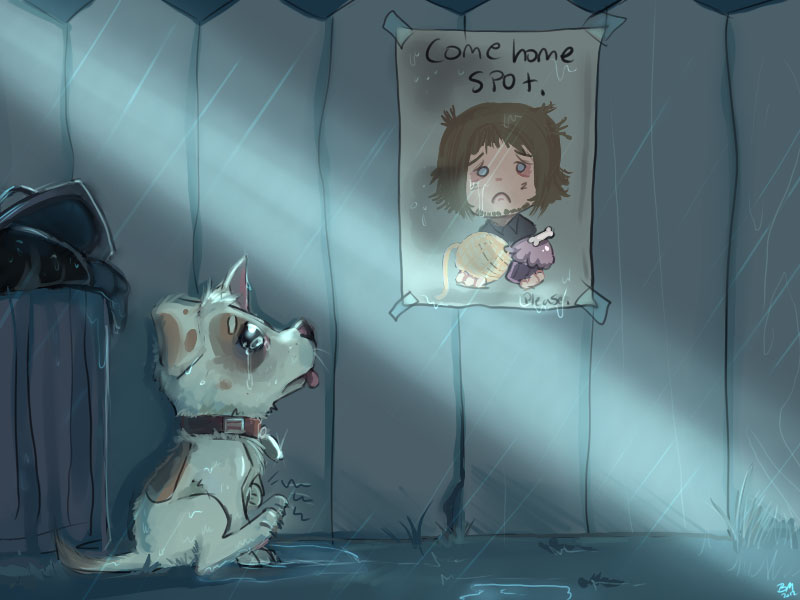Traditionally most veterinarians have preferred to desex dogs and cats shortly before they enter puberty, at around six months of age. The thinking has been that six months is not too young, not too old, and an age that pre-dates the advent of sexual maturity, with all of the behavioural issues that can bring. Most vets would still see that as the ideal age, for most pets, and in most circumstances.
The success of public education programmes promoting desexing to reduce the number of unwanted dogs and cats, and the introduction of State and local laws mandating compulsory desexing for animals sold as pets or adopted from shelters has seen the average age for desexing steadily reduce. In many cases shelters and Humane Societies are now routinely desexing animals before they go to their new homes, sometimes at as young as 8 or 9 weeks.
As far as the spaying or neutering procedures themselves are concerned there is no inherent problem in desexing an animal even at this very young age. Young puppies have very strong recuperative powers and are generally running around or looking for dinner just a few hours after their operation.
However, research in recent years has seen a growing body of evidence that desexing too early can potentially affect the long term health of your pets, in some cases quite severely. Early neutering (males) and spaying (females) has been suggested as one potential causal factor in the areas of orthopaedics, cancers, life expectancy, behaviour and a wide range of other negative health outcomes. The findings of some studies have set alarm bells ringing amongst progressive veterinarians, many of whom are now rethinking the long established ’standard’ protocol of 6 months and fine tuning their desexing age recommendations based on a range of factors, including gender, breed, genetic markers etc.
There are two factors at play here, both linked to desexing. The removal of the gonads (testicles or ovaries) — which occurs when conventional methods of desexing (castration or ovariohysterectomy) are used — and the consequent loss of the hormones produced by these reproductive organs is one. See here for more comprehensive coverage of this. The second is that this loss of steroid hormone production, particularly when conventional desexing is performed prior to full physical maturity, has also been implicated in delayed closure of the growth plates, which can lead to significant changes in physical growth patterns in desexed dogs compared with unaltered dogs.
In a growing dog (or cat) various hormones, including the sex steroid hormones, help control the genetically pre-determined lengths and weights of bones. The closing of the growth plates should occur at full physical maturity, preventing further growth. If closure is delayed by early desexing it can result in alterations to body proportions. Dogs spayed or neutered before puberty can often be taller, have longer limbs, lighter bone structure, narrower chests and narrower skulls than intact dogs of the same breed.
These changes in growth patterns can lead to significant orthopaedic health issues. For example, in one study of 203 agility dogs the tibia and radius and ulna were found to be significantly longer than the femur and humerus, respectively, in dogs spayed or neutered prior to 8 months of age when compared to intact dogs. Another study, conducted at the University of California, Davis, examined the medical records of 759 Golden Retrievers treated over a 10-year period and found a greater occurrence of hip dysplasia (1.5x) and cranial cruciate ligament tears in desexed Golden Retrievers compared with their intact counterparts. That research found the health risks were greater for dogs who were desexed when younger than one year old.
Several studies have concluded that neutered and spayed dogs also have a significantly higher prevalence of CCL rupture, and are three times more likely to suffer patella luxation. In recent years there have been some 180 different studies on the health effects of desexing. Most have found some correlation between early desexing and negative health outcomes of various types and degrees of severity.
These negative health issues can affect all breeds but, for the most part, seem to primarily occur in large and giant breeds of dogs, with some breeds far more likely to be affected than others, including Golden Retrievers, Rottweilers, Bernese Mountain Dogs, German Shepherds and Boxers. Even within those at risk breeds individuals may or may not be affected. Conversely, individual animals within breeds thought to be unaffected by abnormal growth rates, such as toy breeds, may suffer some of the issues that generally affect larger breeds.
As is so often the case with medical research, even after many studies, large and small, there is rarely a definitive black and white answer. However, here at Alpine Animal Doctors we think that, overall, the weight of evidence against early desexing is compelling enough to warrant us taking it into account when making recommendations for desexing.
We have no ‘standard’ recommended protocol on the age at which you should desex your pet. Each patient is evaluated individually and recommendations made only after taking into account a range of factors. We will of course consider the gender of your pet, and any genetic propensity of its breed to suffer higher incidences of those health issues related to desexing. In addition we will also look at your pet’s growth rate at the time of examination (not all dogs grow at equal rates). We may also look at diet and ‘lifestyle’ issues such as exercise levels, both of which play a part in growth rates, before making any recommendation.
In very general terms however we might suggest that toy breeds can be safely desexed at around 7-8 months old. Medium sized dogs may be best allowed to go through puberty and reach physical maturity, at about one year of age. For larger breeds physical maturity may be reached at around 18 months, while giant breeds can still be growing at two years old.
The downside of waiting until physical maturity is reached is that your pet will have entered sexual maturity prior to being neutered or spayed. Most of our clients find this easy to manage for a few months but it may be challenging for some pet parents or some households. If this is the case you may wish to consider vasectomy for male animals or an ovary-sparing spay (OSS) for females.
These alternatives to the conventional castration or ovariohysterectomy (OHE) retain the testicles or ovaries which are responsible for the production of the hormones that are now known to play such a large part in healthy growth. With these intact it is safe to desex at an earlier age while still avoiding the potential long term health issues. You can learn more about the pros and cons of castration here and of ovariohysterectomy versus ovary-sparing spay here.
In all cases, the wishes of our clients are paramount. We understand that sterilising your pet is an important decision and we welcome any questions you may have. If you prefer to desex earlier, using conventional surgical techniques, we will of course respect your wishes.
At Alpine Animal Doctors we have been taking the most current scientific information into account — and offering alternatives to the conventional ‘one size fits all’ approach to desexing — for a couple of years now. Around 50 to 60 per cent of our clients are opting to delay desexing, particularly spaying of females, until their pet is fully grown. We are already seeing some encouraging signs that our re-evaluating of age recommendations looks likely to lead to a healthier life for our patients, with less need for veterinary intervention as they grow older.
For additional information, see OHE or OHS — which is best for my female dog? and Castration or Vasectomy — which one is right for my dog?





